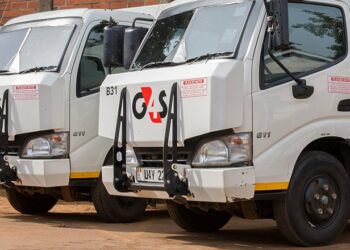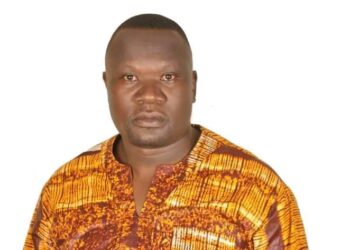By Ofwono Opondo
It is three weeks since Uganda began an aggressive response to the sprawling Coronavirus (COVID-19} in which government initially issued precautionary and preventive measures because the virus was still thousands of miles away in China, US, and Europe. Gradually, COVID-19 has reached Africa, and Uganda in particular through importation by travelers from the epicenters.
Of the 320,000 confirmed cases, only 1388 are in Africa, of which eighteen are in Uganda as of Friday and no death yet. By comparison, Britain, has 578 deaths. In Uganda, all the identified patients are currently under admission and showing recovery. Traceability of 574 people who returned from Dubai in the past two weeks including local contacts has been effective. To pretend at this point that we know all COVID-19 possible effects on politics, economy and sociology, would be delusional, if not delinquent because it’s just unfolding. The measures so far issued by government are pointing towards a partial lockdown and Ugandans are keeping to their gods hoping the worst, doesn’t come home.
The shared shadows of death hanging overhead, failure in public health emergency, drastic changes in daily life, collective capacity to defend the economy, and anxiety about the future are all grim prospects. In this short span even government critics have accepted the importance of the state as guarantor in emergency for which government must show unconditional humility.
Earlier, President Yoweri Museveni issued thirteen measured steps to guide public health and immigration interventions without announcing a countrywide lockdown which would have caused panic. These measures banned large gatherings in education institutions, religious, political, cultural and social merry-making ceremonies, funerals and burials, and have limited mass infections.
There is evidence that overall public awareness levels are relatively high although continuous campaign through the mass media platforms of radio, television, newspapers, and online social media is necessary to ensure adequate compliance. For this reason, government should classify the media as part of the essential services during these tough times.
This week, the president issued additional measures which included closure of all border points to general human traffic, strictly controlled commercial goods transit, and shutting down Entebbe International Airport. All these measures are intended to limit entry into Uganda by possible suspect cases. President Museveni also announced a ban on public markets for non-essential goods, and public transport including taxis, coasters, buses, passenger trains, tuk tuk, and Boda bodas. Private vehicles shouldn’t have more than three passengers, the driver inclusive. Meanwhile, trucks for delivery of foodstuff, security and other essential services like garbage collection will continue to operate.
To coordinate and enforce compliance to these measures, government has established an Inter-Agency Joint Task Force (NTF) led by the UPDF and comprises police, prisons, immigration, Customs, National Water and Sewerage Corporation, KCCA and UMEME to support the Health Ministry in combating COVID-19. While the general public has responded well by embracing most of the hard measures, there are few greedy people in trade and businesses who continue to violate or opportunistically exploit by hoarding and hiking prices of goods and services considered essential for daily life. These times should teach Ugandans to live by themselves, frugality and heathier lives like including basic hygiene.
The cane-happy police and UPDF officers seen flogging citizens on the streets for not heeding presidential directives must be is reprimanded because their conduct is inconsistent with the good image of pro-people security services. Also, better command and control is critical so that public support on measures being taken doesn’t wane.
We also need to re-examine measures like social distancing, online trade and work in the context of general technological illiteracy, affordability, informal and congested settlements in urban areas where inequality is endemic. Business or people under distress are unlikely to practice social distancing or save. They will most likely spend the little in their possession.
While it is hard for now to ask government to inject direct cash to cushion ailing businesses, it is imperative that relevant institutions engage stakeholders to consider sets of packages for the short, immediate and long term. For those in rural communities, copying may be easier because they have access to banana, potatoes, cassava, yams, beans, green vegetables, chicken and meat. Likewise, some urbanites can travel to their return carrying free goodies.
The small and medium enterprises like eateries, bars, hair salons, barber shops, metal, timber and furniture workshops, motor garages and washing bays, from which many low-income urbanites rely, are on dire straits. Their owners could be encouraged to return to their villages, where a grass-thatched hut can be built in a day to help save, social distance, trace and isolate affected persons. Unfortunately, the ban on mass public transport is shutting that door.
For the big or emerging corporate businesses, the fact that COVID-19 is affecting virtually every part of the world, many analysts believe that rich countries will be hard pressed to offer any immediate and substantial help to Africa. We must begin to learn modest ways to solve serious problems by ourselves and not always relying on foreigners because sometimes they too don’t have solutions.
Do you have a story in your community or an opinion to share with us: Email us at editorial@watchdoguganda.com












